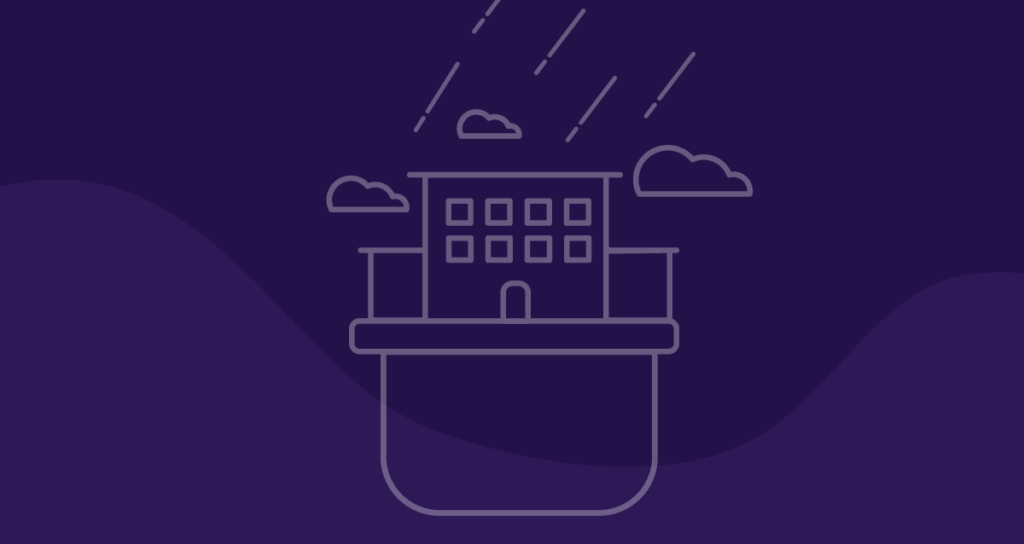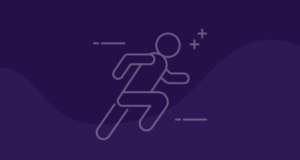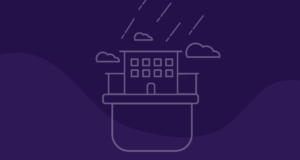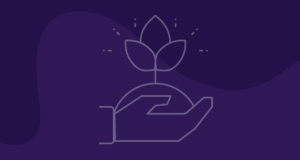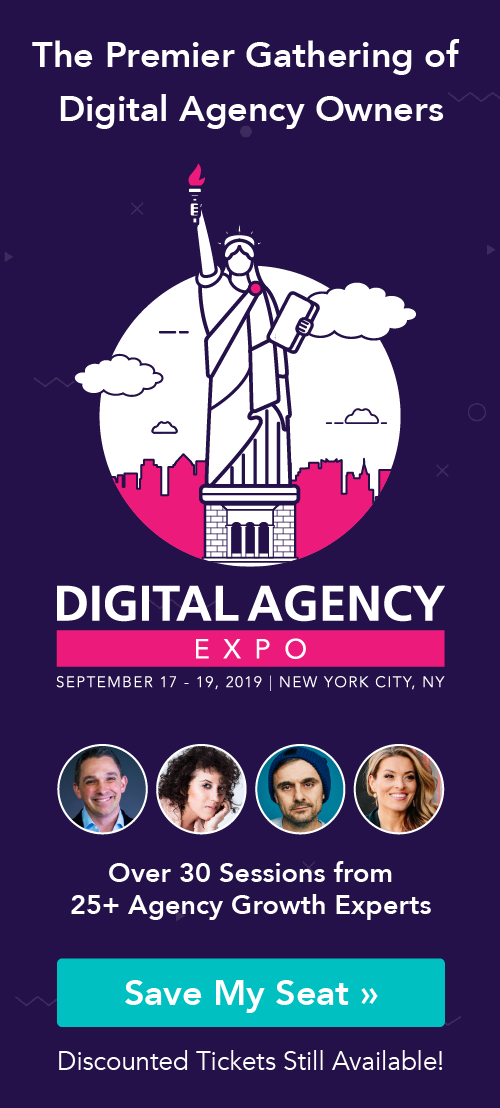123 million people Elfed themselves, pasting their faces onto dancing elves to get into the holiday spirit.
But here’s the thing…
This is the perfect example of a viral branded campaign that doesn’t really work.
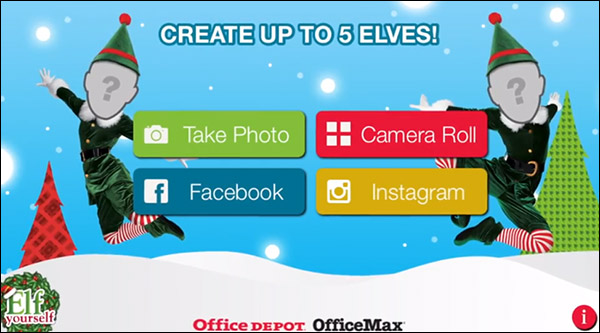
I was part of the team at OfficeMax that created the campaign, and I’ll be first to tell you—while it was fun and engaging, and a massive success in terms of virality—it didn’t sell a lot of paperclips.
Worse still, no one thinks of OfficeMax when they think about the campaign. Most people have no idea the app was created by an office supply store. And if they do, the campaign simply puts OfficeMax in the friend zone.
Sadly, that’s what a lot of marketing today does. It doesn’t inspire love and ongoing sales. It sparks little more than a lukewarm friendship.
To build your digital marketing agency, you don’t need viral content and other bright, shiny marketing tactics being promoted today.
What you need is the perfect pipeline.
I know, because I walked this same path growing my digital marketing agency, Clymb.
On my journey, I made a lot of mistakes. It wasn’t a perfect course getting to the perfect pipeline. But if you learn from my mistakes, you’ll likely get there in half the time, possibly shaving 2 years of heartache and $3–5k of investment off your own journey.
How to Build the Perfect Pipeline for Your Digital Marketing Agency
You may be reading this article because there’s a mountain you want to climb. There’s something you want to accomplish, but it’s hard and you’re looking for guidance.
If that’s you, I want you to understand something: There’s no one way to climb a mountain and reach your business goals.
My story will give you some guidance. But I want you to realize that this is only one path up the mountain. I’ll show you what I’ve done, but you need to adapt these lessons to your own brand.
To begin, I’ll show you how we started selling our services. Then I’ll tell you about the turning point, the moment when I realized how precarious our success was. And I’ll wrap up by telling you how we adjusted course to smooth our climb and scale our growth.
The secret is to balance momentum and recklessness: forward momentum to climb but being careful to avoid a wipe-out.
Balancing Momentum and Recklessness
When I began the Clymb agency, we had 3 areas of focus: content creation, premium content, and lead generation.
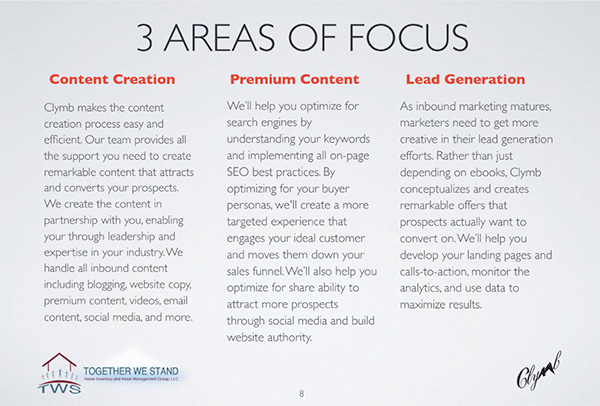
We also offered 3 monthly packages: Fast, Faster, and Fastest.
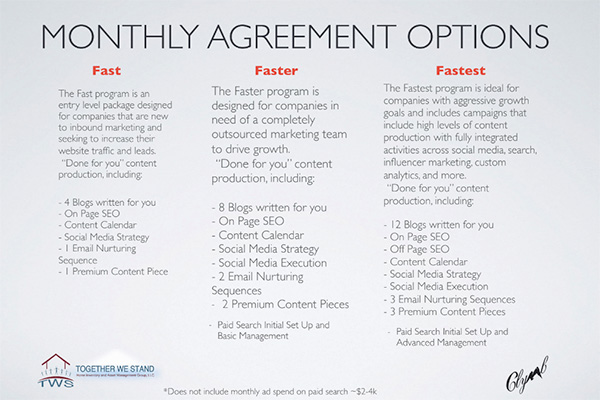
As you can see, our focus was inbound marketing. We were a Hubspot agency, and our services were simply a reproduction of Hubspot’s strategy.
None of this was bad, but it wasn’t the perfect fit for us. Then, to exacerbate the problem, we were a bit “partner happy.”
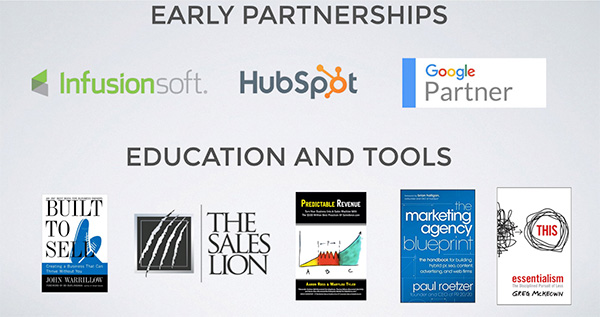
As an agency, you may be in the same boat: young, hungry, trying to learn, and searching for the golden ticket to facilitate growth.
Don’t do what we did.
When you adopt partners and their systems without contextualizing them to your agency’s brand, you lose momentum. And when you adopt too many partners, you muddy your message, again, sapping momentum because your strengths don’t stand out as easily.
You can see this in our early growth pattern.
We had moments when we were growing and figuring things out, but something would happen, and the service level wasn’t where it ought to be, so we’d lose a client or an account manager or some other setback.
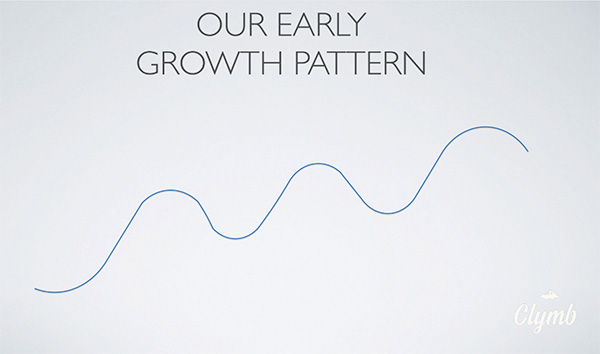
For me, as an entrepreneur wanting to grow a company and take care of people, this was incredibly stressful.
We were growing, sure, but we kept losing momentum. And the upward climb was grueling.
Still, within the first 18 months, we hit our first million in top-line revenue.
But then life happened.
I was due to get on a plane and fly to Inbound when my wife’s water broke. Exciting news, right? Wrong. She was only 7 months pregnant.
For the next 6 weeks, we lived at the hospital. I did business in the evenings from a hospital room. All my attention went to taking care of my wife and newborn son.
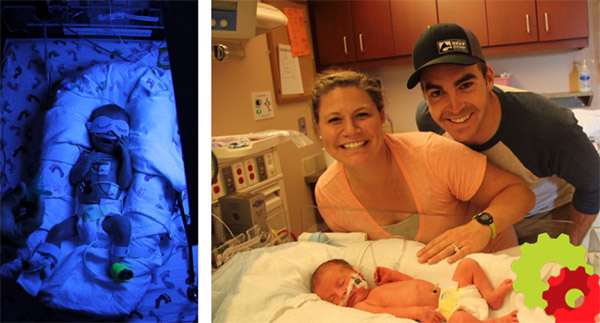
Finally, things got back to normal, but when the dust settled, it was time for a report card. Those 6 weeks were a good measure of whether my agency could survive if anything happened to me.
And sadly, it failed.
- We lost a few clients
- Leadership needed to be in the room almost all the time
- The systems and people were not in place for the business to run without its founders
I came face to face with the realization that what we were doing was not sustainable. It would be reckless to continue doing business as we’d always done it. We needed a better operating system.
Getting Out of the Friend Zone
It was then that I read Ryan Deiss’ article on Customer Value Optimization.
That’s when I realized we’d been doing friend-zone marketing. Blogging, email opt-ins, and other routine marketing tactics had helped us grow, but the path had been harder than it needed to be.
A critical component was missing. Namely, the Tripwire.
Without it, we struggled to move people out of the friend zone and into a dating relationship. But we didn’t know where to begin.
So, we flew to Austin, met with the DigitalMarketer staff, and completed our Certified Partner training.
Now, back in Colorado, we sat down to a blank whiteboard and rebuilt our agency’s offerings from scratch. Except this time, instead of adopting a partner’s marketing plan outright, we contextualized the process to who we are and what we do.
Creating an Ascension Path
We started by creating what we called The Everest Ascension Process.
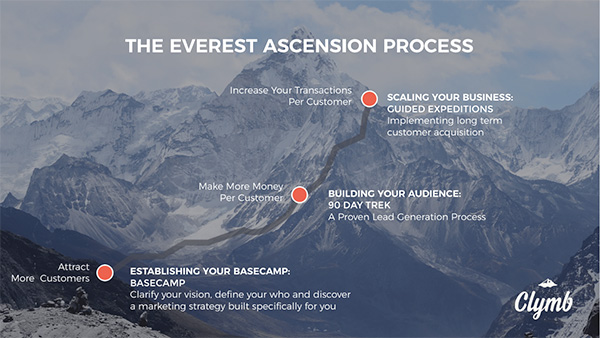
Instead of selling individual services, in a graphic that perfectly fits the Clymb brand, we show customers the 3 levers they can pull to grow their business. Beside each is its corresponding service package.
In a sales call, prospects quickly identify their biggest need. I only need to ask them, “Where do you see yourself fitting on this mountain?”
I want you to notice something else. This graphic isn’t a brochure. It’s a sales tool.
When we use this piece during a sales call, there’s no hard sell. In fact, our clients sell themselves, and we move through the sales conversation faster.
Building a Compelling Tripwire
The second piece we developed as a Certified Partner was our Tripwire. If you remember, this was missing from our initial marketing plan, and not having it meant we were destined for the friend zone.
Now, the Trail Map is our Tripwire, and from there, customers can choose from two options: Basecamp or the Guided Expedition.
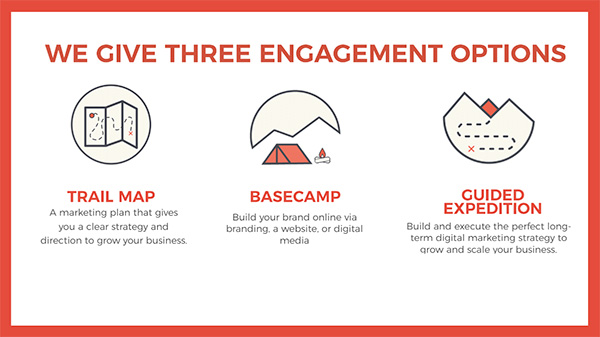
The Basecamp is a website, branding, and basic digital media. The Guided Expedition is a growth strategy, offered in 3 different categories:
- Ranger: We’re the consultant, giving you strategy and guidance, but you do the work
- Guide: We work together to implement the strategy
- Sherpa: A completely done-for-you service
But let’s get back to the Tripwire…
We call it the Trail Map, and it was developed as a way to productize our strategy service.
Trail Map is a 1-day workshop that’s completely unique in our industry. It sets us apart, helps us build a lasting relationship with our prospects, and weeds out the people who aren’t a good fit for our agency.
Essentially, we partnered with a local mountain bike shop for these events. They provide top-of-the-line mountain bikes. We provide the prospects. And we offer a day on the mountain, making memories. Then, at the end of the day plus 2 follow-up calls, we talk about how their business can climb the mountain to reach their goals.
In other words, strategy.
It took time to perfect this approach. And it required us to strategically fit the Customer Value Journey to our brand and our strengths. But the results have been nothing short of amazing. So amazing, in fact, that Clymb was later acquired by Human Design.
Reverse Engineering Success: 5 Tips to Grow Your Digital Marketing Agency
Looking back, I realize that had we understood the dangers of friend-zone marketing, we’d have hit our mountain peak in half the time, shaving 2–3 years off our growth curve.
There were a lot of missteps that could have been avoided. And we should have begunwith the mindset of building an agency so valuable that someone would want to buy it.
So how do we reverse engineer success? I break it into 5 essential tasks.
1. Find Great People
The 3 types of people who will help you grow your business are…
- Mentors
- Referrers
- And your team
These are the people who will help you grow your business: co-founders, contractors, and employees.
These 3 groups are the people you need to invest in.
But don’t overdo it.
You can run a lean operation of just 3-5 employees, then use strategic partnerships and contractors to get specific tasks done. This gives you a good margin and forces you to be disciplined.
2. Productize Your Services
You need a Tripwire. Period.
Identify the thing that makes your agency unique. Sell that and nothing else.
Tell a story with your sales presentation. You need to be both prescriptive and descriptive, so people walk away knowing who you are and what you do and how you differ from everyone else.
For us, the story was about climbing a mountain. It will be something else for your brand.
Make it easy for your customers to sell themselves by positioning themselves on the grid of your offerings.
Then make it easy (and fun) to get started with your agency.
When our Tripwire was a seminar or a happy hour, it wasn’t as successful. When we set up our first mountain-bike event, we had double the prospects we anticipated. For us, this worked well because we’re located in a destination spot, and it fit the Clymb brand perfectly.
3. Treat Your Agency As a Client
Build out different ways for clients to find you and move through your Customer Value Journey.
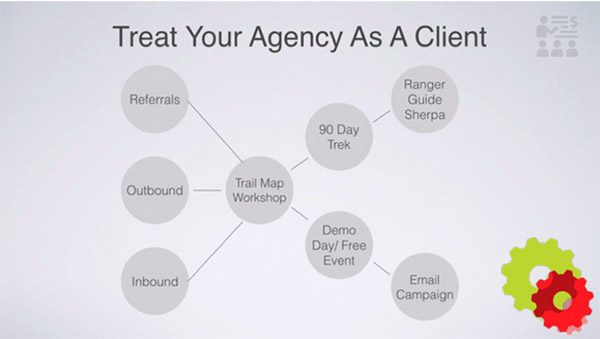
Our funnel starts with referrals, outbound marketing, and inbound marketing. Because our Tripwire is an event, it’s easy to sell and easy to promote. Here, we aren’t trying to sell value, just the event itself.
From the Tripwire, we offer a 90-Day Trek, our first upsell. If prospects say no, we offer a downsell, our Demo Day, which is a free event. Then, we follow up with leads through video and email.
The idea is to treat your agency as a client, finding your unique story, the things that make you stand out. Then create a funnel with a Tripwire that helps you prequalify prospects and quickly convert them into paying customers.
4. Sell Your Products the Right Way
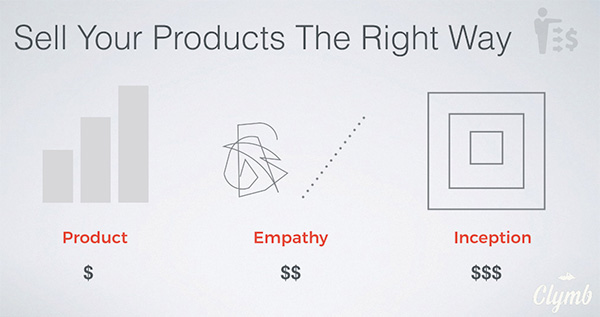
It’s important to evaluate your sales process as well as your offerings. Don’t just repackage a partner’s offerings. Contextualize them by fitting them into your brand. Tweak them to reflect your unique strengths.
Always keep in mind, if all you’re doing is selling products, anyone can do that. If you’re selling empathy or relationship, you’ll need more nuance. It’s not about your sales pitch alone but your ability to connect with your prospects.
True growth happens if you can get your prospects to sell—something I call “inception.” For this to happen, you need to develop a sales process that gets prospects to sell themselves.
5. Take Care of Your Employees
I learned this lesson by being a dad…
Your home base matters. If you don’t take care of your agency family, you won’t be able to take care of your clients.
First, train your employees so they know how to do the work that’s required of them. Use DigitalMarketer Lab to do it. It’s the best investment you can make in your agency— by growing your employees’ skills, it’s less necessary that you be present for the day-to-day operations. (That’s a good thing!)
Second, spend time with your employees. We do casual driving or walking meetings as I run errands. This allows us to build the relationship and stay connected.
Finally, defend them. When there’s a problem, assume your client is wrong and your employee is right. That will build loyalty, so you can keep your employees longer.
Bottom Line
Most marketing tactics you read about today are just bright, shiny objects. They may create viral campaigns, but they’ll likely put you in the friend zone.
To grow your business in less time and with less investment, you need to build an ascension path and create a powerful Tripwire.
You can double the size of your agency. But learn from my mistakes. Work smarter, not harder, and you’ll enjoy the journey up the mountain.


